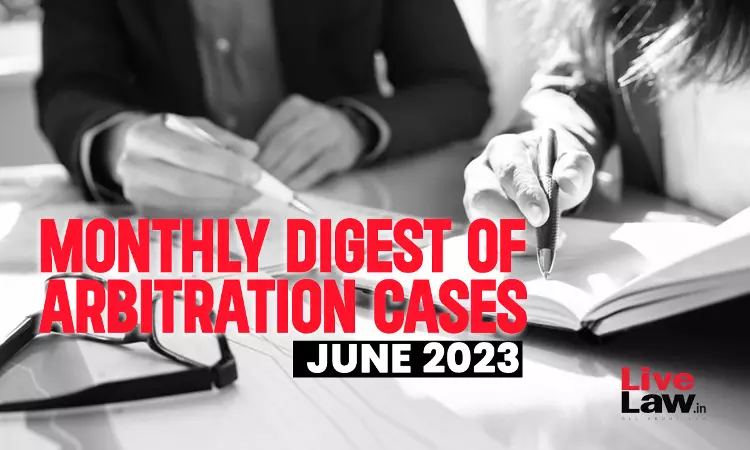Arbitration Cases Monthly Round-Up: June 2023
ausaf ayyub
5 July 2023 6:00 PM IST
High Courts Allahabad High Court: Facilitation Council Which Was The Conciliator Under MSMED Act, Can Arbitrate The Dispute; Bar Contained In S. 80 Of Arbitration Act Not Applicable: Allahabad High Court Case Title: Bata India Limited & Anr. vs U.P. State Micro and Small Enterprise Facilitation Council & Anr. The Allahabad High Court has ruled that the discretion given...
Next Story



